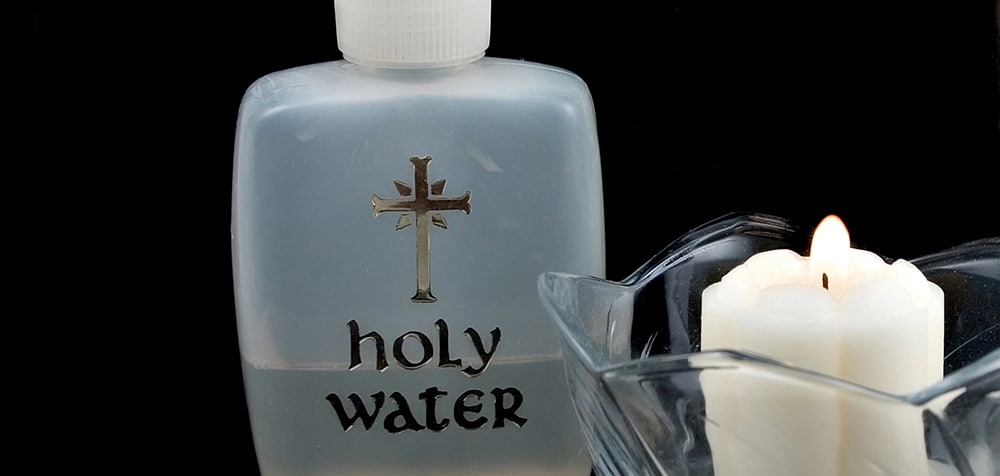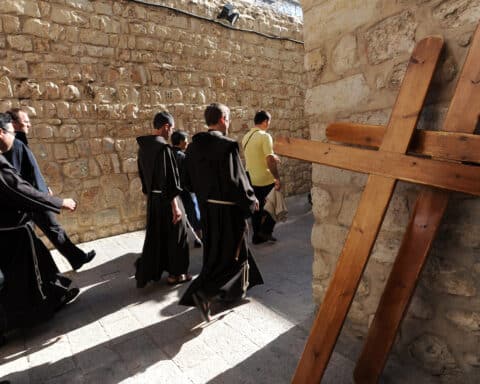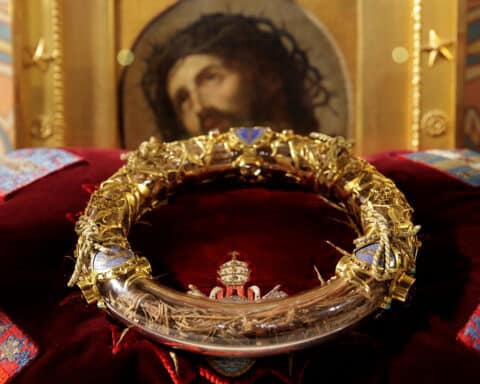
— Michael Quigley, via email
Answer: There is no official teaching about the superiority of one sort of holy water over another. The opinion cited by the priest is a common one among exorcists and emerges from their experience that using solemnly blessed holy water vexes the demons during an exorcism more than simply blessed holy water.
Solemnly blessed holy water is mixed with blessed salt. And both the salt and the water are exorcised before they are blessed. The purpose of an exorcism is to cast away any demonic presence before the blessing is conferred. Some theologians, including St. Thomas Aquinas, have held that exorcisms before certain blessings (and especially before baptism) increase the fruitfulness of what the blessing effects.
Exorcism or not, the water is still blessed, but the fruitfulness may be increased since the demons who might seek to interfere with some of the fruits of its being blessed have been sent away. This remains in the realm of theological opinion and is not official Church teaching.
Even among the pre-1970 rituals, there were different types of holy water. The holy water we have been discussing is the holy water used for most blessings. But holy water for baptism included not only salt but also chrism, and it was blessed using different wording. Epiphany water was considered the most potent of holy water, because it was blessed once a year on the vigil of Epiphany and blessed using an extensive liturgy, similar to vespers. It was mixed with exorcised salt, and the exorcism over the water was lengthier. Hence it was deemed more potent by many.
Thus the idea of one holy water being more potent than another is a theological opinion that predates the council. One thing certainly to be avoided is the modern practice of some priests to bless holy water with a simple blessing. Whatever rite is used, old or new, exorcisms and salt or not, the full rite should be used.
Sundays in Lent
Question: If I give up something for Lent, do I have to include Sundays?
— Jerry Manner via email
Answer: The matter is really up to you. Giving up something for Lent is not an aspect of Church law; it is a pious custom. Hence you can decide whether or not to include Sundays. Some people find it easier to wholly abstain from something, since the on-again-off-again approach makes abstaining more difficult. Others feel just the opposite. Many of the Church Fathers such as Ambrose and Gregory counsel a lightening of penances on the Sundays of Lent. However we do well to recall that fasting and abstinence were more substantial than today, and one day a week off may have been more necessary. Still another option is to lighten the practice on Laetare Sunday, St. Joseph’s feast day and the Annunciation. Even if Sundays are a day off from a chosen abstinence, they still are counted as part of Lent.
Msgr. Charles Pope is the pastor of Holy Comforter-St. Cyprian in Washington, D.C., and writes for the Archdiocese of Washington, D.C., blog at blog.adw.org. Send questions to msgrpope@osv.com.





